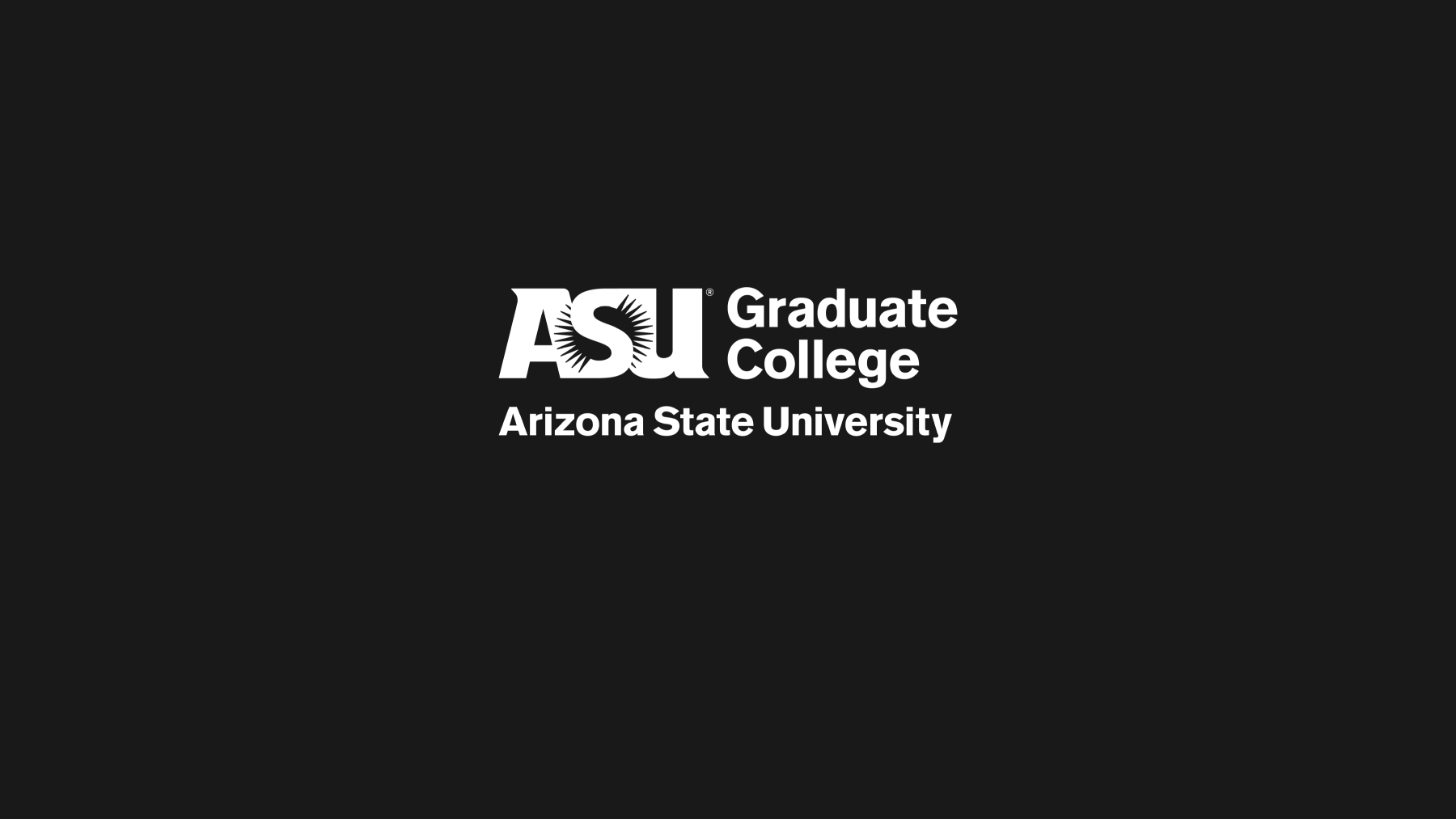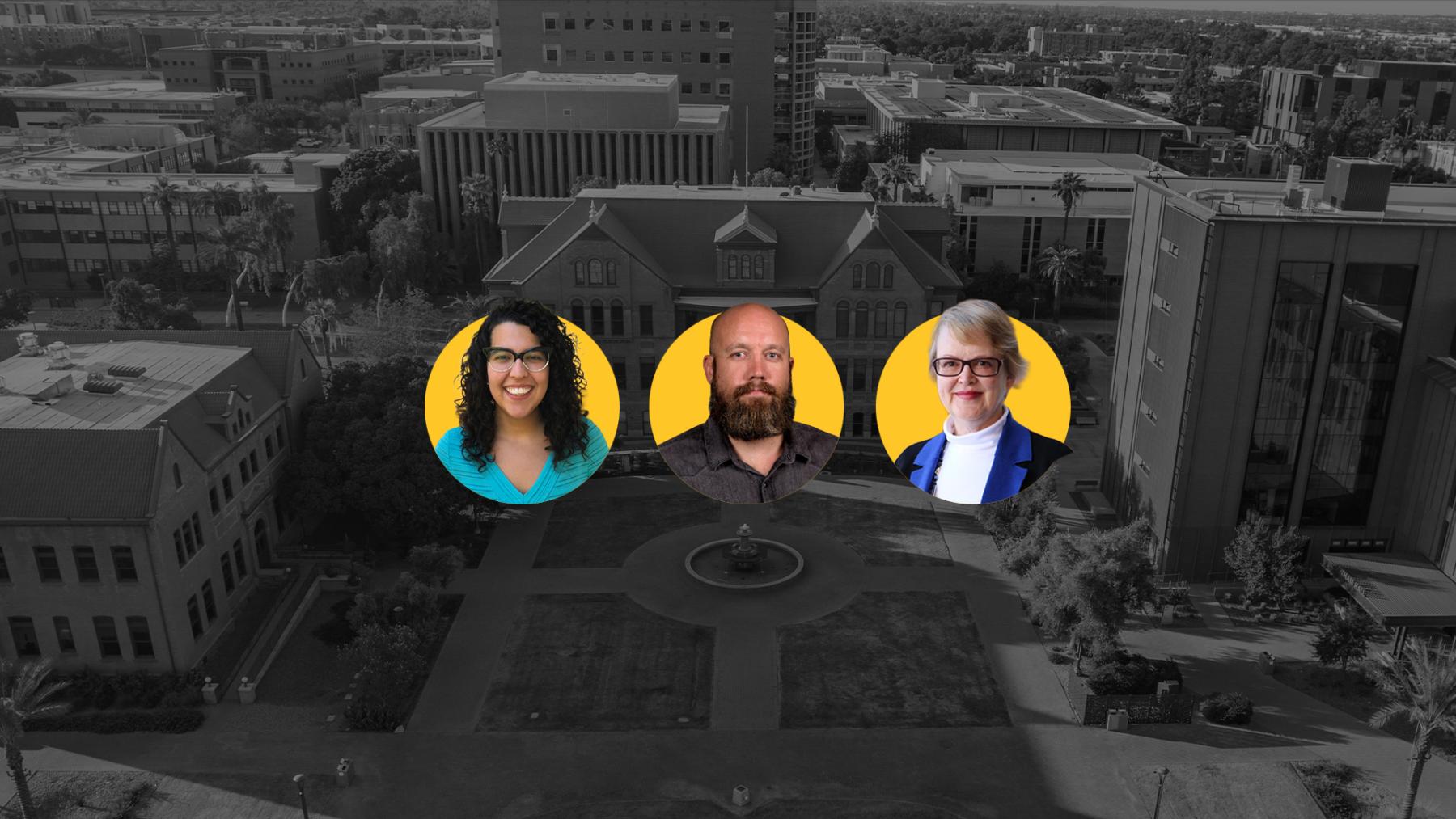
Outstanding Graduate Faculty mentoring spotlight: Dr. Gabriel Shaibi, College of Nursing and Health Innovation
The Graduate College’s Outstanding Faculty Mentor Awards showcases the importance of faculty-student relationship building. At the 2018-2019 OFMA ceremony on January 30, four outstanding student-nominated ASU faculty members were selected by a panel of their peers as recipients of this year’s award. As part of its larger work to promote and highlight the efforts of outstanding mentors at ASU and the foundational role of strong faculty relationships to graduate student and postdoctoral scholar success, the Graduate College is following up with recipients Gabriel Shaibi, Anca Delgado, Barbara Klimek and Linda Luecken in a series of articles highlighting the advice and experiences of these exemplary faculty members around mentorship. For this month’s installment, we asked Gabriel Shaibi, Outstanding Postdoctoral Mentor, about his mentoring inspirations, practices and tips for both students and faculty new to mentoring.
Shaibi first discovered his passion for helping students achieve their goals shortly after graduating from college as a middle school teacher and high school football coach. Now, as director for the Center for Health Promotion and Disease Prevention and associate professor in the College of Nursing and Health Innovation’s Exercise Science and Health Promotion Program with joint research appointments to the Southwest Interdisciplinary Research Center and Center for Metabolic and Vascular Biology, Shaibi is inspired and energized by the efforts of his graduate research teams.
“I have really enjoyed the opportunity to work with students as an educator,” said Shaibi. “The impact we are making as a team focused on a shared mission and vision to improve the health of children and families in the community while contributing to science and mentoring the next generation continues to inspire me.”
The potential of education to make a lasting impact on lives is central to Shaibi’s teaching and mentoring philosophies. It has been shaped by his own graduate journey, where he learned to value the importance of the faculty-student relationship in the creation of enduring professional networks.
“I had an unbelievable opportunity as a graduate student,” he said, “to be part of a large transdisciplinary team where we learned from each other through constructive feedback, challenging ideas and healthy disagreements. Everyone was given the opportunity to participate in all aspects of the research, including dissemination of findings.”
These experiences inform Shaibi’s own relationships with his graduate students and postdoctoral scholars, who he pushes to grow and develop not only as emerging scholars and researchers but as colleagues.
For his students, Shaibi’s accessibility and involved, relationship-based approach to teaching and mentorship is invaluable; with over 40 undergraduate students, graduate students, postdoctoral scholars and junior faculty calling Shaibi their primary research mentor or chair over the past twelve years, he is recognized for his eagerness to go ‘above and beyond’ in nurturing enduring professional relationships with his students and peers.
Erica Soltero, a postdoctoral scholar who has worked closely with Shaibi, says his enthusiasm and support has been instrumental to her academic and professional development and career-readiness. “I am confident that I will be prepared for the job market,” Soltero explains, “because of the time and attention that he gives to mentoring me. Dr. Shaibi has pushed me to be a better scientist.
This is one reason that Soltero, among a group of nearly a dozen former and current students in Shaibi’s labs, made her way to the Tempe campus to see Shaibi recognized for his mentoring excellence this past January at the Outstanding Faculty Mentor Awards reception, standing and cheering loudly as he accepted the award.
For Soltero and her peers, Shaibi’s recognition was a worthy reward for the patience, care and transparency that are hallmarks of his teaching and mentorship styles.
For Shaibi, receiving the award was gratifying for another reason. “It means that the values that were instilled in me by my mentors are being appreciated by the next generation. I try to focus on their professional goals to put them in the best possible place for success,” he said. This nomination is an affirmation that he has been able to contribute to their ongoing growth, development and success.
Although Shaibi finds reward in forging strong, lasting professional and personal relationships with his mentees, he recognizes that this approach does not come as second nature to all faculty. “Mentoring is not for everyone,” he said. “It should not be taken lightly. However, it is incredibly rewarding on both a personal and professional level.”
To new faculty members preparing to take on student mentees or advisees, he suggests seeking out mentees who “share your values and interests.” He said this way you can get to know them as a person. Just as importantly, he said, take on students whose passions for their work is evident. “Ask them to articulate their ‘why’ or purpose, and try to orient their work in this direction.”
To graduate students or postdoctoral scholars seeking mentorship, he said, “Work hard. Be curious. Show your value. Ask for opportunities. Seek out multiple mentors.”
And most importantly, he said, “pay it forward.”
More stories from the Graduate Insider

Graduate education is an adventure
About eighteen months ago, I set out on a journey walking the islands of the Dodecanese during a sailing trip in Türkiye and Greece with several friends. Along the way, I found winding paths, timeless villages and breathtaking views of sea and sky. That experience got me thinking about how adventure shows up in other parts of life, especially in learning.

Promoting resilience and well-being in Ghana — and across the globe

From practice to presentation: How to deliver a winning faculty job talk
Giving a job talk can feel like the most high-stakes presentation of your academic job search. It’s not just a research seminar—it’s your opportunity to demonstrate vision, communication skills, and fit within a department. In a recent Lunch and Learn, faculty members Associate Professor in School of International Letters and Cultures, Anita Huizar-Hernandez, Professor in School of Life Sciences Jeffrey Jensen, and Professor in Department of Physics Patricia Rankin shared concrete strategies to help graduate students and postdocs succeed as future faculty candidates.